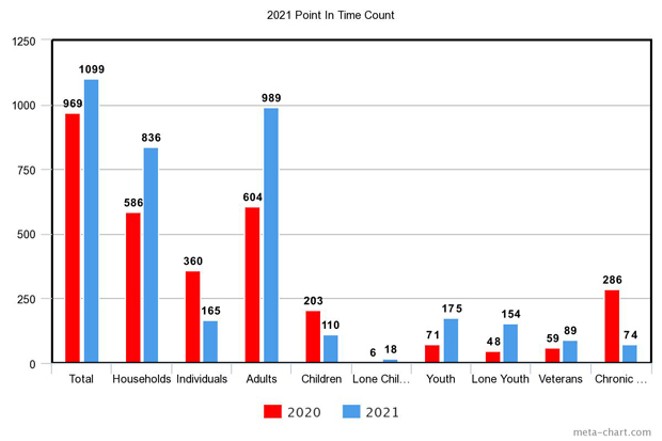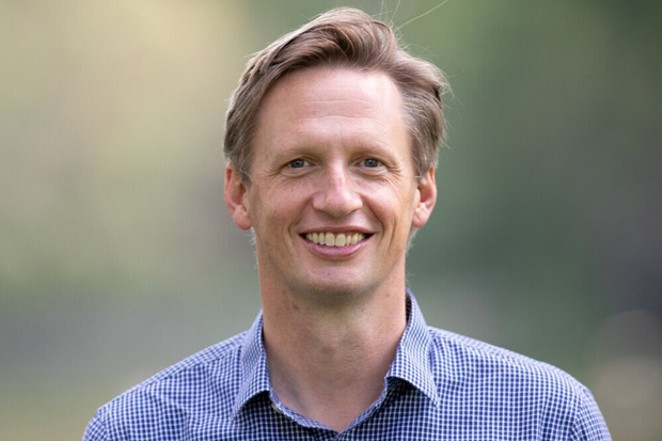On Dec. 8 the Deschutes County Commission signed a letter that put it in the running for a potential pilot program that would give $1 million to communities to form joint offices to address houselessness. Rep. Jason Kropf (D-Bend) is developing the concept with the League of Oregon Cities, Association of Oregon Counties and other stakeholders, though it hasn't been drafted into a formal bill yet. We reached out to Kropf to find out more about the pilot.
Source Weekly: Is the proposed pilot program based on Bend City Councilors' suggestion to the county? And will it meaningfully differ from what they proposed?
Jason Kropf: The genesis for this pilot project was the proposal put forward by Councilors [Megan] Perkins and [Anthony] Broadman. This idea led to conversations with county commissioners, other local leaders, and eventually statewide organizations to see if this concept could be adapted into a pilot project in different communities across the state. The pilot project will help provide communities with the resources they need to ensure that their families, veterans, seniors, young people and others have a safe and stable place to call home.
SW: In what areas are municipalities best suited to address issues with houselessness? Where can counties best help?
JK: Our cities and counties can help coordinate and amplify the amazing work people and organizations are already doing to tackle houselessness. Cities and counties have some different tools at their disposal to do this. For example, cities are well-positioned to address zoning and planning issues, while counties can provide public and behavioral health services that may intersect with houselessness, such as treatment for mental health and substance use disorders. With joint city/county efforts, I believe we can build on our strategic planning, continue to identify policy and other gaps, and strengthen coordination with our faith groups, local nonprofits and others to maximize our communities' services. Additionally, our cities and counties can help facilitate community-wide conversations to make sure our entire community is heard as we chart a path towards ending houselessness.
SW: How would this differ from the Emergency Homelessness Task Force, which is already a joint effort to address houselessness?
JK: I'm very appreciative of the collaborative efforts the City of Bend, Deschutes County and community partners have taken through the Emergency Homelessness Taskforce. The proposed pilot project would serve to strengthen and build off of these efforts. I want communities participating in the pilot to have the leeway to develop projects that best serve their needs and build on the existing resources of their communities. In the Bend/Deschutes case, the access to additional state funding and resources will help support and accelerate the work already undertaken by our community.
SW: Have you heard from other communities that would be interested in participating in the pilot?
JK: Communities from around the state, including the Coast, Gorge, Mid-Willamette Valley, and Eastern and Southern Oregon have expressed interest in participating in the pilot program. A goal of this legislation is to have a diverse group of communities participate with an eye to learning from each of their different approaches.

SW: There will be $1 million in funding to start the office, but what would those funds ideally be spent on? Will amounts be earmarked for certain purposes at the state level or will everything be decided locally?
JK: This legislation would fund two-year pilot projects with each project receiving $1 million in state funding. Recognizing that the needs and realities of our state's communities differ, this bill provides a high degree of flexibility to cities and counties alongside some general funding parameters. For example, this one-time funding will help support joint city/county offices, community outreach efforts, capacity building and technical assistance to help communities implement a five-year strategic plan to address houselessness. Another important goal of the bill is to engage people who are or have been unhoused in their communities' efforts to tackle this issue.
SW: What steps need to happen to start the pilot program?
JK: The next step will be to identify the pilot project's participating communities. After that, I'll be working with leaders and legislators from those communities to pass this bill. The length of the short session can make it difficult to move through legislation, but I know myself and local and state partners are committed to taking this important step to address houselessness in Oregon communities.

























